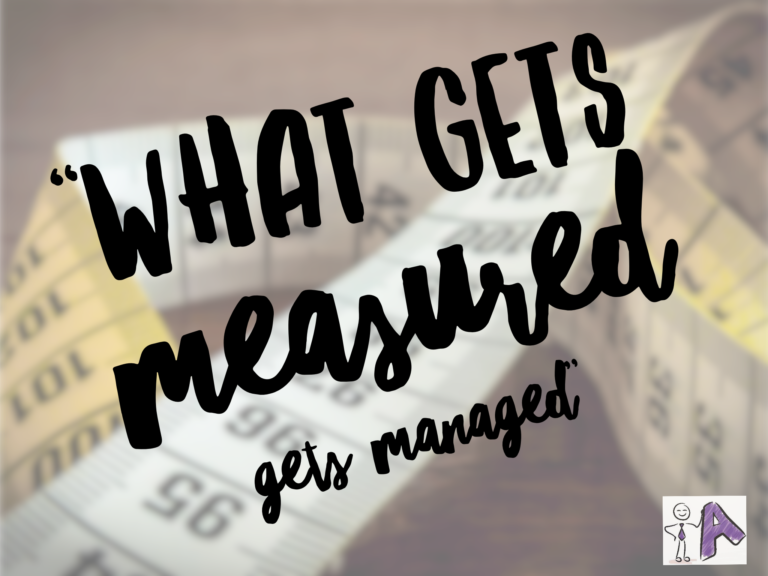Measure and manage what is important

There is a well known quote, misattributed to Peter Druker – “What gets measured gets managed”
We can approach this in a number of ways.
One way to approach this is to notice that what we focus on measuring is the thing that we tend to change, so as to optimise the measurements. In the business world a simple example is turnover. If we are measuring turnover then we tend to optimise for that. We can increase turnover and spend quite a bit getting there and adversely impact our profit. So if we’re measuring something that isn’t important, managing that metric can adversely impact what is important.
Another way to approach this is to identify what is important to manage and try to measure that. For instance in the above example, profit. If you are wanting to improve profit then measure it and this encourages you to explore experiments and changes to improve that. But what about some other important metrics that we may not be able to measure. Do we just give up?
Hold that thought, as I’d like to refer you to the book “How to Measure Anything: Finding the Value of Intangibles in Business” by Douglas Hubbard.
Science has a long history of deducing the value of one thing from the measurement of other things. In this above book, Douglas Hubbard uses the example of measuring the size of the Earth by the Ancient Greeks and Eratosthenes from around 200 years B.C.E, who used the difference in shadow lengths from different locations that he could get to and measure, to estimate the circumference of the Earth. The models and equations of science helps with this as we can understand the relationships between some tangible and intangibles.
So with if we can understand the models and relationships in other areas like Business, we may be able to do the same by measuring the tangibles and calculating the intangibles. For instance, if we are not be able to directly measure things like ‘public image’ or ‘risk of failure of a product’, we may be able to measure other things that we can use to deduce these.
The business model of Google and Facebook are built upon deducing future behaviour through the direct measurement of a huge range of other factors. And while we cannot all be Google and Facebook, we can try to ‘measure’ what matters, even when we cannot directly ‘measure’ it, by looking at things we can measure and how they are linked. And while understanding the relationships and how the tangibles affect the intangibles may be difficult, we can make some inference and we may not actually need a multi-decimal point accuracy to still have useful data to use in our decisions.
- An important first step is to look at a number of different metrics, so that we’re not at the risk of optimising one factor at the expense of other important factors. Even in the example above we can adversely affect things like customer loyalty if we’re trying to squeeze profit in everything we do. So spread your measurements around, don’t just focus on one thing.
- Don’t just focus on hard metrics like profit, cost, turnover, try to infer or measure more softer metrics like customer loyalty, customer satisfaction or business global or local impact.
- And if you have an important factor that you don’t think you can directly measure. See what you can deduce by the measurements you CAN make.

